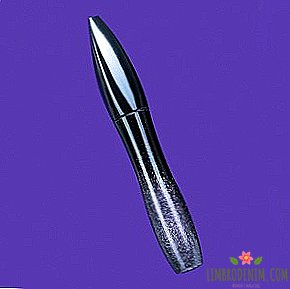Checklist: 8 products that you store incorrectly

alexander savina
It would seem that difficult to store food? We all know that it is impossible to re-freeze what has already been in the freezer, and you need to quickly remove the remnants of ready meals in the refrigerator - what other questions could there be? Nevertheless, we do many things out of habit, because our parents, partner, partner or housemates did so. We tell what to look for if part of your catch in the supermarket is inevitably sent to the trash because of improper storage.

1
Apples
Of course, storing fruits and vegetables in two large boxes at the bottom of the refrigerator is the easiest and most convenient way - but, alas, this is not the best way. Some fruits produce ethylene gas, which, in turn, contributes to the ripening of fruits that are sensitive to it. This property of ethylene is even used on an industrial scale, but it is rarely necessary to help other fruits ripen at home.
Apples emit a lot of gas (especially if we are talking about a darkening fruit), so you should keep them separate from other products, for example, in a package with small holes (perhaps not the most environmentally friendly way, but nothing prevents you from taking the same package many times) . An exception is when you intentionally want to speed up the process: for example, you can put an avocado and an apple in a paper bag so that the first one ripens faster. At the same time, the apples will stay fresh and crispy longer in the refrigerator - so you should not put them in a vase for fruit if you do not plan to eat as soon as possible.
2
Tomatoes
It seems logical that tomatoes should stay fresh longer in the fridge. But, alas, lowering the temperature only harms them, as it changes the taste of the vegetable. Experts recommend storing fresh tomatoes at room temperature and eating them for a week if possible - though, of course, there is no guarantee that the vegetables did not lie in the refrigerator before they hit the store shelves.
Tomatoes are not the only product that is better not to clean in the cold - room temperature, for example, is also better for citrus fruits (lemons, limes, oranges and tangerines), potatoes (store them in a dark cool place so that it does not turn green), sweet potatoes (like and in the case of tomatoes, the refrigerator can affect its taste), onions and garlic.
3
Cucumbers, eggplants and avocados
Rules for storing cucumbers and eggplants are a bit more complicated than those of other vegetables. The optimum temperature for them is 10-12 degrees Celsius - most likely you are warmer at home, but lower temperatures will harm these vegetables. It is possible to store cucumbers and eggplants in the refrigerator, but not for long - the changes will come in a couple of days.
A complicated storage scheme is also required for avocados - especially if you, like many Russians, buy them slightly underripe and wait for them to become soft. They are recommended to be stored at room temperature until they ripen, and then moved to the refrigerator and quickly eaten - a long stay at low temperatures hurts the fruit. Do not forget about the trick with the apple and ethylene, if you decide to speed up the process.

4
Eggs
Many are accustomed to storing eggs at room temperature, but the US Food and Drug Administration recommends using only a refrigerator to avoid salmonellosis - and not even buy eggs that were stored on a non-refrigerated store shelf. Manufacturers recommend storing eggs not in special plastic containers, which are in many refrigerators, but in the original carton - it absorbs odors, preventing them from getting to the egg itself, and at the same time helps not to forget how long you bought the batch. It is better to store the eggs not on the door of the refrigerator, but on the shelf, where the temperature is more stable.
And even eggs can be frozen, for this they need to break into a container and beat until smooth - in this form they can be stored for up to four months. Freeze eggs in the shell the FDA does not advise.
5
Coffee
No matter how much you want to believe in the opposite, coffee cannot be stored forever. If you drink a couple cups a week, resist the temptation to buy a kilogram of grains right away and stretch it for several months - most likely, the coffee will become tasteless much faster: on average, the grains retain the taste a couple of weeks after roasting.
Freshly ground coffee oxidizes faster, so there is no sense in grinding for future use either. Try to protect the coffee beans from direct sunlight and excessive contact with air: cover the package with a clothespin or transfer the contents to a tightly closed container. And, please, do not store them in the refrigerator - nothing good from the humidity and aromas of other products will not work.
6
The nuts
This may seem strange, but the nuts are also not always worth keeping at room temperature, especially if you buy them in large quantities at once. Many of them, such as almonds, pecans and walnuts, are stored at room temperature for only a couple of weeks - if you feel that you have not eaten stocks during this time, boldly put them in the fridge (there they can lie for up to nine months). Or even freeze - different types of nuts can easily lie in the freezer from six months to two years. Remember that, like spices, nuts are sensitive to light, high temperatures and humidity - so you should not keep them just above the stove.

7
Bread
Many believe that the power of the refrigerator will help keep the bread fresh longer, but, alas, it is not. Standard refrigerator temperatures accelerate the crystallization of starch in its composition, so that, on the contrary, it will quickly turn black. It is better to store fresh loaf at room temperature in a package away from direct sunlight - and if you know that you will not be able to cope with it for a couple of days, immediately cut it into pieces and freeze, in order to reheat when needed. In the freezer, the bread feels good.
8
Spice
Contrary to popular belief, spices should not be stored forever. Of course, you will not be poisoned - just over time, seasonings will lose their taste, so you should not keep them for more than a few months. A few rules will help to prolong the life of spices: keep them in a sealed package (if you pour them into jars or tin containers according to recommendations of interest, make sure that they are tightly closed), away from light, heat and humidity - no matter how comfortable next to the stove, it is better to take care of them so that they do not lose their taste.
PHOTO: Moon picnic




